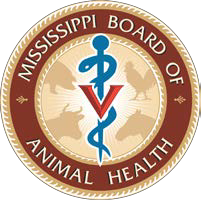Biosecurity Measures to Combat Avian Influenza Threat
Biosecurity is a process to prevent disease from entering your farm or poultry flock. Avian influenza (AI) makes it extremely important for commercial producers and backyard flock owners to protect their flocks by having a strong biosecurity program in place. There are two main pathways for disease transmission in most poultry flocks:
- Direct transmission (physical contact between infected and healthy individuals)
- Indirect transmission (disease agent is carried to susceptible individuals) by
- humans
- feed
- water
- environment (contaminated pens, pastures, or water sources)
- shared equipment
- rodents and other vermin
- pets
Two Sets of Biosecurity Practices
- Prevent direct transmission.
- Acquire birds only from National Poultry Improvement Plan (NPIP) flocks.
- Quarantine birds for 30 days after purchase or returning from shows/fairs.
- Do not mix multiple species, particularly ducks and chickens, or ages.
- Do not allow your flock contact with wild bird droppings by keeping domestic poultry under a roof (impossible if you free-range).
- Prevent indirect contact.
- Post “No Visitors” and “Restricted Area” signs at road entrance to farm.
- Do not allow visitors access to your birds and do not visit other poultry farms.
- Have dedicated clothing and footwear for use when working in/near your flock.
- Essential visitors should wear disposable coveralls, boots, and headgear; multi-house farms should practice this between individual houses.
- Clean and disinfect feeders and drinkers every day. Clean and disinfect poultry houses and equipment at least once a year.
- Clean/disinfect all coops, crates, and other poultry containers or equipment before and after use. Use plastic or metal, not wood; wood is difficult to clean.
- Do not keep feeders or other sources of food for wild birds on your property.
- Use sound deterrents to keep wild birds from roosting on your property.
- If one of your birds becomes sick or dies, do not move the other birds to a different farm, even if they appear healthy.
- When possible, cover pens and vents and openings in the poultry house with narrow-mesh wire screen to keep out wild birds.
- Monitor all vehicles entering the farm to determine if they have been properly cleaned and disinfected, including the tires and undercarriage.
- Maintain an effective rodent control program (rodents can carry many diseases).
- Do not share equipment with friends or neighbors.
- Purchase feed from a trusted source; keep it safe from wild birds and rodents.
- All persons entering poultry facilities should use footbaths, and footbaths should be changed frequently to help maintain effectiveness.
- Wash hands and use hand sanitizers both before and after visiting the resident birds.
- Bird- and varmint-proof your coop, pens, and houses.
- Keep poultry houses securely locked; lock from inside while working inside.
- Dispose of dead birds in an approved manner (composting, incineration, burial).
- Hunters and anyone handling wild game (especially waterfowl) must completely change clothing and shower or bathe before entering flock area.
USDA has created six simple biosecurity steps that can help lower the risk of disease entering your flock:
- Keep your distance.
- Keep it clean.
- Don’t haul disease home.
- Don’t borrow disease from your neighbor.
- Know the warning signs of infectious bird diseases:
- coughing, sneezing, watery eyes, nasal discharge, and gasping for breath
- lethargy, depression, and decreased feed and water intake
- swelling around the eyes, neck, and head
- purple discoloration of the wattles, comb, and legs
- watery or green diarrhea
- drop in egg production or increase in soft- or thin-shelled and misshapen eggs
- sudden increase in bird deaths in your flock
- Report sick birds.
- If you suspect a problem, say something immediately. Don’t wait for things to possibly get worse. Sick and dying birds should be submitted to a diagnostic laboratory for proper diagnosis of the problem.
- If you are a commercial producer, contact your service tech for guidance and assistance at the first sign of a potential disease issue. If you are a backyard producer, contact your local county Extension agent, your veterinarian, the Mississippi Veterinary Research and Diagnostic Laboratory (601-420-4700), the Mississippi State University Poultry Science Department (662-325-3416; ask for a poultry Extension specialist), or the Mississippi Board of Animal Health (601-359-1170 or animal disaster hotline 1-888-722-3106). Early reporting is critical to protect the health of your birds and the Mississippi poultry industry.
- Normal daily mortality should not be reported because this will only slow officials in trying to determine the actual disease status. However, a drastic change in flock health status or sudden large increase in mortality should be reported.
The Mississippi Board of Animal Health, in conjunction with USDA, will implement a five-step process to deal with AI cases:
- Quarantine. Restrict movement of poultry/equipment into and out of the control area.
- Depopulate. Humanely euthanize the affected flock(s).
- Monitor region. Test wild/domestic birds in a broad area surrounding quarantine zone.
- Clean and disinfect. Kill the virus in the affected locations.
- Test. Confirm that the poultry farm is AI virus-free before allowing repopulation.
These steps limit the exposure of healthy, noninfected flocks in order to help contain the disease. This will help ensure a secure food supply by humanely euthanizing infected flocks, thus removing them from circulation. Poultry is still safe to eat. Cooking methods that are already recommended by the USDA and the FDA for poultry and eggs to prevent other infections will also destroy influenza viruses. It is recommended that poultry be cooked to at least 165 degrees Fahrenheit. Consumers may wish to cook poultry to a higher temperature for personal preference. This is true for all poultry all the time, not just in a disease outbreak situation.

This material may be copied and distributed as needed as long as the content is not modified.
The information given here is for educational purposes only. References to commercial products, trade names, or suppliers are made with the understanding that no endorsement is implied and that no discrimination against other products or suppliers is intended.
Information Sheet 2015 (POD-08-15) Click to download pdf.
This information was developed, adapted, and approved for use in Mississippi by Tom Tabler, Extension Professor, Poultry Science, and Brigid Elchos, Deputy State Veterinarian, Mississippi Board of Animal Health. Some information is adapted from Extension publication L-5182 Poultry Facility Biosecurity by John B. Carey, Extension Program Leader for Poultry Science, Texas A&M AgriLife Extension Service, Avian Influenza: Biosecurity for Flock Owners by F. Dustan Clark, Associate Center Director of Extension and Extension Veterinarian, University of Arkansas System, Division of Agriculture, Research, and Extension, and Extension publication IS2014 Highly Pathogenic Avian Influenza Biosecurity Checklist by Tom Tabler, Extension Professor, Mississippi State University Extension Service, and Brigid Elchos, Deputy State Veterinarian, Mississippi Board of Animal Health.
Produced by Agricultural Communications.
The Mississippi State University Extension Service is working to ensure all web content is accessible to all users. If you need assistance accessing any of our content, please email the webteam or call 662-325-2262.



